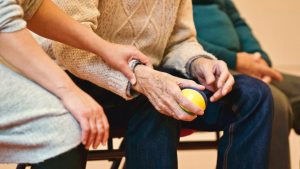The world is full of great intentions, great plans that will deliver positive, caring benefits; and yet those in recovery find it hard to implement some of those intentions. Recovery is work, really hard work. Those who have taken that path present with a dignity and fortitude that documents how hard they have worked to move forwards, and yet for some, the world of recovery is harder than it is for others. One group who find it especially hard to access some services are those caring for others; predominantly, this group is women.
I have probably visited nearly fifty UK residential treatment services (rehabs) in my career, and despite making up over half the population, women are barely represented. There are specialist rehabs caring only for women, and there are also ones that support families. However, these are rare, and still fail to accommodate the number of women who need this service.
When I first started working in rehab I did not notice this issue. There is just so much to take in that you do not immediately notice what is missing. It was ironically only when a resident made comment on the presence of a women’s group did I realise that 52% of the general population was only around 18% of those in treatment in the place I worked. This city based service was a typical caring service, and was not doing anything to deny women and those caring for others in treatment – so what was going on? In reality, women tend to be the primary caring force within wider society, and it is no different in the world of treatment.

A common issue for those in recovery is that they are very good at caring for and looking after others, often at a cost to themselves. Beyond the bravado that comes with a life of survival, people who enter treatment are generous to others while neglecting themselves. They are often funny and kind and caring whilst self-denigrating. Some have such low self esteem that they keen to reject any offers of help whilst offering the shirt off their back to soothe others whilst rejecting any suggestion that they are worthy of becoming the best version of themselves.
People in recovery are much more predisposed to have acutely low self esteem, low expectations of what they can achieve and a very high sense of hopelessness. If you then consider that women who are in addiction may have been the primary caring force all their lives, caring for elders, younger siblings, and their own children at a cost to themselves, then this accounts for the gap between society and rehab. This shows why there is a need not only for women’s groups within rehabs, but also entire rehabs caring for women.
It’s also true that those caring for others in society are more likely to put the needs of others before their own. Women are much more predisposed to refuse rehab treatment. They will refuse a life changing opportunity for several reasons; they do not want to leave the kids, they need to be at home, who else will take on the caring role within their family? Often, they have such a low sense of their self worth that they are reluctant to take a place in rehab as they imagine it is denying a place for someone who is more worthy than themselves.
The most compelling evidence of self neglect that I have witnessed was when a client told me about the turning point in their life. They were arrested for shoplifting, for stealing to keep things together in addiction. It was this episode that lead to her being denied the opportunity to continue to make poor choices. She had been caught and now the authorities would impose treatment as part of her sentence and if she failed to engage, then they would take her kids from her.
Her crime of stealing food was not the turning point for her; nor was the arrest or the prospect of punishment. The turning point was the realisation that she had only stolen enough to feed her kids. Despite all the pain, all the risk, all the struggle to get through the day, she was still going to go hungry that night even if she had not been caught, because caring for her children was her primary motivation and responsibility.

Women remain 52% of the population. As well as the numbers of caring women in society needing a way in to rehab services, they need more support to move forward in recovery solely because society promotes the role of primary carer, whilst neglecting to remind those in the position of caring that this role should not be at a cost to themselves.
You can’t support others when you’re not caring for yourself. Here at Betterminds, our range of courses, tools and techniques are designed to help you and your staff to take responsibility for yourselves, even when you feel responsible for others. Get in touch with us to allow yourself the support you deserve.

